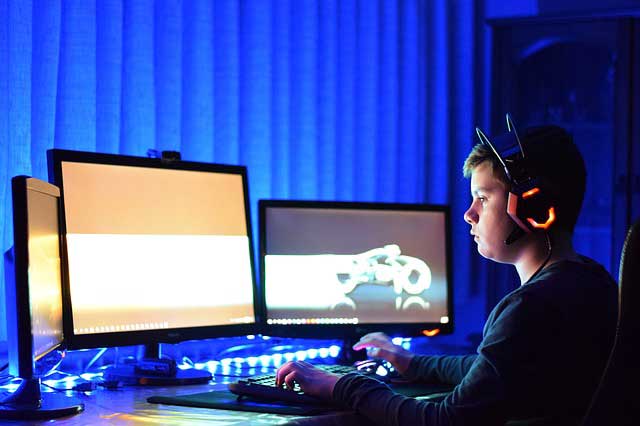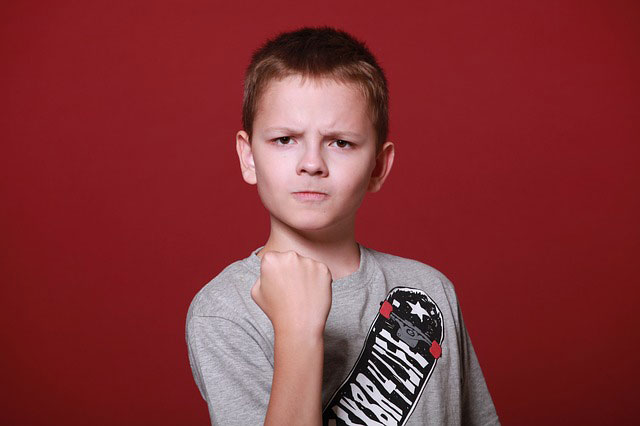When your child is being cyberbullied it can be a difficult form of harassment to identify. Cyberbullying can happen through comments on social media, it can happen through internet trolling, stalking or even impersonation.
There are a lot of nasty ways that people on the internet can cyberbully your child, and this can even extend to safer spaces such as online video games and private chat rooms.
If your child is exposed to the internet, then there are countless threats that could lead to cyberbullying.
Since it’s difficult to discern if your child is being cyberbullied or not, we’ve put together a list of 15 indicators that will help you if your child is really being cyberbullied.
15 Indicators That Your Child Is Being Cyberbullied- Check below:
1. Your Child Has Stopped Using Their Mobile Phone All The Time

Kids typically love to use their mobile phones for everything from games to social media, but if they’ve abruptly stopped using it or don’t focus on it as much, then it’s completely possible that they’re being cyberbullied and want to avoid seeing the nasty comments and harassment by refusing to use their phone.
2. Your Child Tends To Avoid The Internet More Often

The internet can be a harsh place filled with harassment and belittling comments that are difficult to get away from.
If your child has been cyberbullied, then it’s possible that they’re associating the internet with those bad situations and are trying to avoid using it.
3. Your Child Has Abruptly Ended A Session On The Computer

If your child suddenly turns off the computer and goes to their room or avoids the computer, then it could be a sign that they’re being cyberbullied and the attackers are at it again.
4. Your Child Looks Angry Or Upset When Using Their Phone

If your child ever looks angry or upset when using their phone then it could be that they’re getting cyberbullied. This could especially be the case if they use social media on their phone.
5. Your Child Withdraws From Friends And Family
This is a rather common sign of bullying in general and isn’t limited to cyberbullying.
If your child seems more withdrawn and doesn’t want to go out, meet friends or speak to the family, then it could be because they’re a victim of cyberbullying. This link is to 10 reasons to monitor a cyberbullied victim’s social media.
Below is the link to the best-reviewed monitoring service that we found and recommend as an affiliate. The service has been approved by PCmag.com, Softronic.com and Softpedia.com. Click on the graphic to review the features and benefits.
6.Your Child Has Trouble Sleeping
If your child has trouble sleeping at night then it’s possible that they’re worried about cyberbullying or even in-person bullying at school.
7. Your Child Pretends To Be Ill More Often
Another common sign of general bullying is that your child will pretend to be ill in order to avoid interactions at school. This is a common thing to do if your child is being bullied in person as well.
8. Your Child Has Stopped Hanging Around With Some Friends
Children can quickly turn nasty against each other and if your child has stopped hanging around certain friends, then it could be because they had a disagreement that eventually leads to cyberbullying.
9. Your Child Doesn’t Talk About Their Day At School Anymore

If your child no longer talks about their day at school then it’s very possible that it’s because they’re being cyberbullied or bullied by their fellow students.
If you discover that there is indeed cyberbullying and real-life bullying, it’s best to speak to the school faculty and have them assist in solving the situation.
10. Your Child Doesn’t Share What They Do On The Internet

The internet is a wonderful place to have fun and educate yourself. Children often tell their parents about their adventures in the digital world, but if they’re being cyberbullied then they might not have anything positive to share.
11. Your Child Has Stopped Speaking To Friends Over The Internet
Online services allow your children to speak to friends over the internet using voice messages and live chatting. This is especially common during video games.
If your child no longer speaks to friends over the internet while playing games, then it could be a sign that they’re being cyberbullied and don’t want to interact.
12. Your Child Has Stopped Playing Games Over The Internet With Friends

Video games are a common activity among friends over the internet, but if your child is being cyberbullied or harassed then they might find it difficult to play those games and enjoy themselves because the bullying is on their mind.
Games are meant to be a fun way to relax and enjoy your time, but if your child has a bit too much on their mind such as harassment then it’s worth reaching out and asking them what’s wrong.
13. Your Child Has Difficulty Getting Homework Finished

If your child uses the computer to do their homework but they find it tough to focus, then it could be because they’re being cyberbullied and are associating those bad memories with time on the computer.
14. Your Child Has Unexplained Anger Or Sadness After Using The Internet

If your child turns off the computer after using it and looks sad, upset or even distraught, then it could be because of cyberbullying and harassment that is happening over the internet.
It’s worth speaking to them should this happen so that you get a better idea of what it is they’re going through.
It could just be that your child is having a tough time with homework or they’re stressed about something else, but if it is cyberbullying then you may have a hard time getting the truth out.
15. Your Child Takes Less Care Of Their Phone

Whether it’s throwing the phone onto the sofa, leaving it uncharged, forgetting it in random places or even kicking it around on the carpet, there’s a chance that your child might be trying to avoid social media and the internet in general.
As you can see, many of these cyberbullying indicators do share similarities with regular bullying.
This means that it can be hard to tell if it’s cyberbullying or real-life bullying, but regardless of the cause, it’s still very important to speak to your child and support them through these troubling times.
If you need to read more on this subject and are worried about your child’s safety Deborah Serani has written the article Bullycide for www.PsychologyToday.com and it can be read here.
Conclusions
Cyberbullying is a serious issue that can have a detrimental impact on a child’s mental and emotional well-being. By recognizing the signs and indicators of cyberbullying, parents and guardians can take appropriate action to support and protect their children.
it is important to have an open and supportive conversation with your child. Offer reassurance, let them know they are not alone, and encourage them to report any incidents of cyberbullying to you, a teacher, or a trusted adult. Remember, swift action can help protect your child and prevent the long-term effects of cyberbullying.


